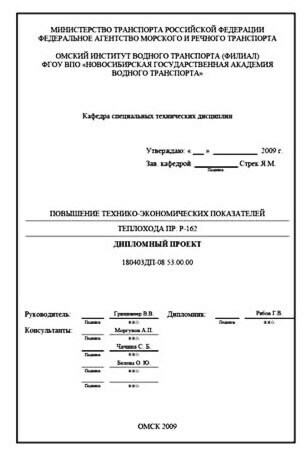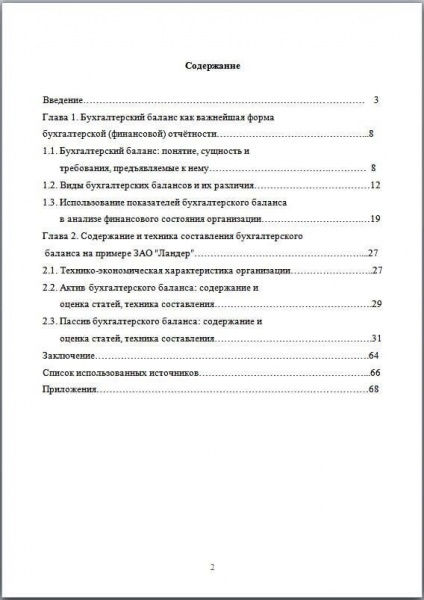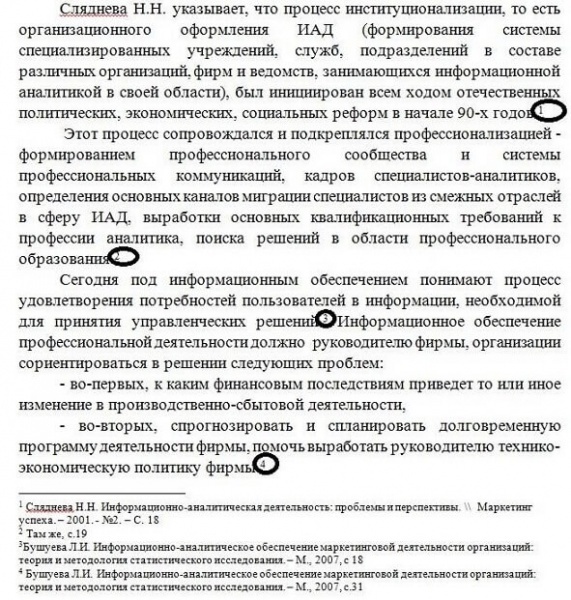"School years are wonderful. ..", is sung in one Soviet song.
The same can be said about the student years, if not for one thing: preparation for seminars, colloquiums, tests, exams, writing test papers, essays, essays, course papers and diplomas.
The last work is especially important, because it directly affects the quality of your certificate.
The most responsible students start thinking at the beginning of the final year, how to write the thesis .And they are doing the right thing, because the assignment is really complicated and time-consuming.
But at the same time - it is quite feasible, if you plan everything correctly and seriously approach the writing of the work.
What is a thesis and what are the requirements for writing it?
During the study each student performs enough jobs. This and abstracts, and creative projects, and essays, and coursework, and much more.
But the most important is the qualification work that is written by the student in the final year, which is the final year.
The diploma work must be written and defended by all students who receive a bachelor's, specialist or master's degree. It depends on how well you write the diploma and protect it, the qualification that will be assigned to you by the commission depends.
Write a job, which is called a diploma is not so easy. There are a number of specific requirements that need to be met:
- The size of the sheets is A4.
- Clear structure:
No.
Name Note 1 Cover
Not numbered 2 Contents
Has a complex structure. For example:
Chapter I.
1.1.
1.2.
Chapter II.
2.1.
2.2.
2.3.
Not numbered.3 Introduction
Briefly discusses the problem being researched, literature analysis is given, the purpose, tasks, research methods are formed, it is indicated to whom it can be useful, etc.
4 The main part of the
Section by section you begin to open the topic. Usually the main part consists of two key sections: theoretical and practical. 5 Conclusions
Briefly indicate what your work is about and what the results of the research are. 6 List of used literature
Must contain at least 50 sources both in Russian( listed first in the list) and in a foreign language. 7 Applications
Not required in the thesis, but there are topics when they can not do without. Applications are illustrations, a compiled dictionary, diagrams and so on. - The size of the thesis is about 100 pages( if there are many applications, the size can be larger):
- introduction - 7 - 9 pages;
- main part - 60 - 70 pages;
- conclusions - 3 - 4 pages;
- list of references - about 5 pages.
- Basic requirements for registration:
- title page;
- content;
- main text;
-
the literature is made out as a numbered list in alphabetical order here on such a pattern;
Books:

Articles:

Electronic resources:




- Fields: right - 3 cm, bottom and top - 2 cm, left - 1.5 cm.
PS.More detailed requirements to the diploma in accordance with GOST can be found at the following link: http: //www.iphem-diplomom-sov.rf/pravila-oformleniia-diplomnoi-raboty
But keep in mind that in your university they may differ slightly, so it is better to get the requirements for structure and design from your supervisor to avoid mistakes.
3 ways to write a thesis
It would seem that there are three ways to write a diploma. The way is he alone: he sat down at the computer, and let's work.
However, this is not the case, and for negligent students there is a way to salvation.
-
On your own.
You, with the support of your scientific supervisor, systematically work on the diploma project, and then, at the end of the year, successfully defending it, if you really created a good job.
This is the most correct way that will allow you to feel confident on protection.
-
Buy already finished work.
Many students who have successfully written and defended a diploma think: "What good is it for me to lose when I can earn money on my work?", And they also spread their works on the network.
You can buy ready-made diploma on the following resources:
- https://www.diplom.com.ua
- http: //www.diplomkin.com.ua/ odessa
- http://studio-expert.at.ua/load
- https: //www.napishem.com/zakaz/ diplomnaya-rabota-po-istorii-rossii.html
- http://www.russia-diplom.com
- http: //magistr.in.ua/ ru and others.
Students that follow this path may face a number of difficulties:
- buying a cat in a poke;
- work is no longer unique and it is quite possible to find a teacher;
- there is no project on your topic, etc.
-
Order a thesis for writing.
You can use the help of the same companies that sell ready-made works, or you can contact one of your smart fellow students.
In this case, you will receive a unique job and will be able to monitor its implementation, imitating independent work before the teacher.
Prepare in this case to lay out a tidy sum.
For example, if we are talking about exact sciences, then the cost of the diploma project ranges from 10,000 rubles and more. Diplomas of humanitarians are cheaper.
The main stages for writing the thesis work
If you are a good student and do not want to exploit someone else's work and deceive teachers, then you have one way out of the situation: sit down and write your own diploma paper yourself.
It's not easy and takes a lot of time from you, but the reward in the form of a good evaluation is worth it.
1) Preparation for writing the thesis
Preparation for writing the thesis consists of several stages:
-
Consultation with the supervisor.
Immediately after you have received the topic of the thesis, you need to agree on a consultation with the supervisor( each teacher has days when he works with students on an individual basis).
On the advice of you:
- confirm the topic or ask for a replacement;
- get advice on how to get started, what kind of work you need to pay attention to, and so on;
- agree on the date of the next consultation, to which you must come with some ideas, ready content, etc.
-
Drawing up a plan.
To work as smoothly as possible, you need to plan everything properly.
For example:
- October - November - search and systematization of materials, preparation of content;
- December - writing an introduction;
- January - February - writing and adjusting the first part;
- March - April - writing the second part and making corrections;
- May - conclusions, compilation of the list of literature, proofreading.
-
Search for materials.
The more theoretical material you find, the easier it will be for you to write a thesis.
To work, not having a theoretical basis, for a student is very difficult.
Use all possible sources:
- libraries( city and university);
- bookstores;
- Internet( here you are looking for not finished works on your topic, but scientific articles, publications, author's abstracts, etc.).
-
Systematization of the collected material.
After you examine all sources for the availability of useful articles, books, research papers, studies and other things, start to systematize the material.
It will be much easier for you to work, if you are still at the search stage, making photocopies or scans, you will indicate where it's taken from.
You can:
- group the material into less and more useful;
- write out or select the necessary quotes in the source;
- make notes "for the theoretical section", "for practical", etc.
-
Writing content.
This preparatory stage for students takes place in different ways.
To some, scientific leaders give the ready content of work already at the first consultation, someone has to write it himself, and then consult the teacher.
Well-designed content looks something like this:

2) How to write a diploma thesis quickly and competently?
In order to write the thesis correctly and correctly, you need:
- Do not get distracted while working - do not get up from the computer until you finish the intended section or subsection.
- To write without "water" - everything that you write should concern the research topic.
- Adhere to the logic when writing - all chapters and sections should be interrelated.
-
Make a small( 1 - 2 sentences) output at the end of each chapter and section.
These conclusions, only modified, can be used to write a general conclusion to the thesis.
- Give in the text direct quotes with footnotes, but do not abuse them. Footnotes should be correctly formed:

- Numbered with Arabic numerals and make a clear signature for each illustrative material, if you have tables, diagrams, drawings, graphics, etc. in the text.
- Remember that jargon, slang, obscene lexicon, dialectisms and the like should not be used, unless such words are part of the research material.
-
Replace the presentation of material from the first person in the singular( "I") to "we".
Correct: "we think", "in our opinion."
Wrong: "I believe", "in my opinion."
- To adhere to writing a single style - scientific.
- Do not delay with the final completion of the thesis, because the supervisor should still write a review on it, and you need to prepare for the defense.
How to enter Oxford: a guide to the action of
To successfully protect your work, write out the thesis that you have researched and what results have been achieved( all this is in your introduction and conclusion).
Your performance on the defense should not last longer than 15 minutes, otherwise you will just be interrupted and will not allow you to finish reading the abstracts.
After your speech, the commission members will ask you a few questions, to which you must briefly answer.
After leaving the office and after suffering a few minutes outside the door, you will return to listen to the "verdict".
No one "hits" on graduates on the protection, so if you took your duties seriously and wrote a decent job, you can consider yourself a person with a higher education and a protected diploma.
5 useful tips how to write your thesis work
And some more useful tips for those who want to write a thesis work independently:
-
Do not overdue with the performance of the diploma.
It's better not to postpone everything for the last month, but start work in September-October of the last academic year.
So you can distribute the load for the entire course and write a really good diploma.
-
Theme can be changed.
If you, when collecting material, have begun to understand that there is too little work that you can use, or if the topic is difficult for you, do not be afraid to tell the supervisor about it.
He can change the subject for you( or at least somehow modify it to make it easier) until it's too late.
-
The supervisor is given to you for help.
Yes, sometimes really scientific leaders are absolutely useless creatures that are lazy to fulfill their duties.
But most often in the fact that cooperation is not glued, the student himself is guilty, who either simply does not go to consultations, or does nothing until the last, or just hesitates to ask questions.
My advice to you: attend all the consultations and do not be afraid to ask for help.
The manager is also interested in getting a good evaluation, because your failure to protect will also be his failure.
-
Pay attention not only to the text of the work, but also to its design.
Even if a great scientific discovery is filed in such a way that after getting acquainted with the diploma the commission will have only bewilderment, then your assessment will not be high.
Here are a couple of tips for avoiding the basic mistakes:
- : Express your thoughts logically, simply, but always in a scientific style;
- subtract your work for grammatical, spelling, punctuation and other errors( or hire an proof-reader to do it for you);
- adhere to the basic rules of text registration - your diploma should look beautiful.
-
Remember the importance of text uniqueness.
Today, all advanced teachers check student diploma projects for plagiarism.
Such scientific leaders already at the first consultation put forward the requirements for uniqueness, for example, at least 80%.
Verification is usually carried out by means of Advego Plagiatus( https: //advego.ru/plagiatus/ top), eTXT Anti-plagiarism( https: //www.etxt.ru/ antiplagiat) and TEXT.RU( https://text.ru).
But, even if you did not put forward such requirements, you should still remember that by rules your text should be completely unique except for direct quotes.
To increase the uniqueness of the thesis project you can:
- retelling the text of books / articles in your own words;
- selecting synonyms;
- using different forms of words;
- rearranging tokens in places;
- prescribing numbers with words, etc.
But the dishonest ways to enhance uniqueness( such as a program of synonymous or replace characters) should not be used.
For detailed instructions on the design of the thesis work
with observance of state standards, see in this video:
Having worked out how to write a thesis , you will realize that it is not too difficult. The main thing is to take responsibility responsibly and not to be depleted ahead of time.
